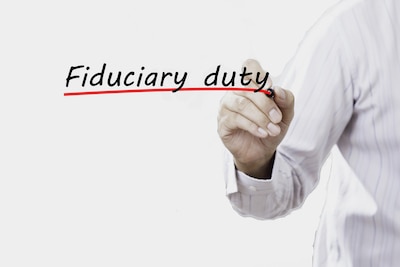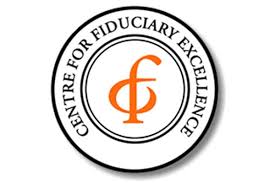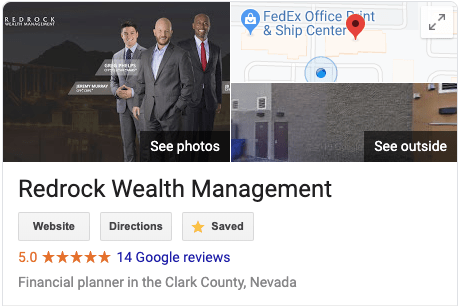Deciding to get financial or retirement planning help is a wise decision for most people. Unfortunately, learning how to find the best financial advisor for your situation—a financial advisor you can trust—can often be more complicated than we would like!
Financial advisors aren’t all created equal. In fact, they come in a wide variety of “flavors.”
The truth is the term “financial advisor” is loosely thrown around and used by many in the financial services industry. Oftentimes the term “financial advisor” is misleading at best.
Insurance brokers, stockbrokers, investment managers, and just about everyone in-between call themselves “financial advisors.”
The scary thing is almost anyone can call themselves a financial advisor even if they lack the skills, education, and experience to competently advise people on financial matters.

Part of the difficulty in finding a financial advisor starts with you! Most people don’t truly know what a financial advisor does. If you don’t know what a financial advisor does—or should do—you’re likely to confuse a slick salesperson for a real financial advisor. This can be disastrous for your financial health!
In addition to other things, a financial advisor should:
- Help solve your money problems
- Create a financial path from where you are now to where you want to be
- Help you reach your financial goals with confidence
- Keep you accountable to your plan
- Help you avoid big money mistakes
- Add value above and beyond the fees they charge
- And a lot more . . .
Notice I didn’t say “the best financial advisors will sell you an insurance or annuity product” or “a great financial advisor will show you how their investments will outperform the next guys’ investments.”
That’s because it’s not about insurance or investment products, it’s about the financial planning process! In fact, most investors make the mistake of focusing solely on investment returns and overlook the entire process. Please don’t make that mistake!
Here’s how to find the best financial advisor you can trust to solve your problems (not sell you products)!
Of course, investment returns are important. They are (after all) a tool to execute your retirement plan.
But you also need to:
- Maximize Social Security benefits
- Minimize taxes
- Earn appropriate investment returns
- Reduce and control debt
- Prepare for the unexpected
- Manage your assets & liabilities, and
- Balance your income and expenses . . .
all while squeezing every last dime out of your finances!
The reality is the best financial outcomes require a holistic financial & retirement plan. A plan that helps ensure you’re doing everything you can in the areas of tax, investing, debt and credit, insurance, estate, and most importantly overall financial & retirement planning.
And you want the best financial advisor possible right?
Let’s face it . . . you don’t want “just any financial advisor” . . . You want “the best financial advisor for your situation!”
I’ll teach you how to find a financial advisor you can trust. One who acts in your best interests! A financial advisor focused on the planning process, not product sales.
Most importantly, I’ll teach you how to find and hire a financial advisor who will earn your trust and respect through professionalism, educational achievements, professional certifications, experience, and most importantly financial results!
A word of caution, don’t rush the process!
Take your time finding a financial advisor. Do your homework before you ultimately hire that person. You need to feel comfortable with them because you’ll be entrusting your financial future to that person.
“The client-financial advisor relationship Is second only to your immediate family and good friends!“
Greg Phelps, CFP®, CLU®, AIF®, AAMS®
Let’s look in detail at the 5 steps to find and hire the best financial advisor for your situation.
1. Make a “best financial advisor” short-list with these tools
Where can you find a well-educated, competent, financial advisor who specializes in the planning needs for your situation? Where do you find a financial advisor who can solve your money problems, accomplish your financial goals, and add value above and beyond the fees they charge?
Don’t use Google and do a search for “financial advisors in [my city]”
You’ll get far too many results that won’t fit your “best financial advisor” requirements. You’ll also be tempted to click the paid ads at the top which may or may not be the best financial advisor for your situation.
Also, you’ll also waste a lot of time.
If you do use Google, make sure you search “fee-only fiduciary financial advisor in [my city]”. That way the “cream of the crop” financial advisors who should be on your short-list will appear at the top. Don’t forget to scroll past the paid financial advisor ads to see the organic search results.
Use “find a financial advisor” tools from organizations whose members generally meet the criteria you should require:
Those “find a financial advisor” search tools can help you find financial professionals in your area that have been evaluated and meet stringent criteria. Generally speaking, the same criteria I’ll lay out in this article.
But wait . . . If you truly want the best financial advisor, consider working virtually
You don’t have to be limited by geography. If the best financial advisor for your unique situation is across the country does it really matter?
After all, you need results! And in this day-and-age of quick and easy video conferencing, your “best fit” financial advisor can be anywhere worldwide!
It’s far more important you find the best financial advisor for your situation than it is to be within close driving distance. After all, once your plan is created and implemented, it’s likely you’d only meet twice a year (if that!)
Driving far across town—or video conferencing—is a great option to ensure you get the best financial advisor period!
What about financial advisor referrals?
Beyond the use of online “find a financial advisor” search tools, ask your family, friends, and coworkers if they know any great financial advisors. Make sure to emphasize you’re looking for a fee-only fiduciary financial advisor! I’ll explain a bit more on that in Step #2.
Positive word-of-mouth references are worth investigating, however, the criteria set forth in this article are far more important.
Your friends and family likely don’t understand why they need a fiduciary or how to find a fiduciary financial advisor. Keep that in mind when contemplating their financial advisor referrals.
2. Find a fiduciary financial advisor (and get it in writing!)
The financial services industry is always eager to give you advice. Usually, it’s to sell you an insurance or investment product. Unfortunately, the people giving that advice may have ulterior motives, incentives, and conflicts of interest.
By definition, a fiduciary is a person who holds a legal or ethical relationship of trust with one or more other parties. Typically, a fiduciary prudently takes care of money or other assets for another person.

More deeply stated, a fiduciary must put your interests above their own. They must embrace a “fiduciary responsibility” to help ensure you achieve the best financial results regardless of their own compensation or personal interests.
As I mentioned, almost anyone can call themselves a “financial advisor” or “financial planner”. In reality, there are generally two types of financial advisors:
- A true fiduciary financial advisor/planner, or
- A salesperson using a wide variety of “professional” titles such as Wealth Advisor, Vice President of Investments, or Financial Consultant.
So how do you know the financial advice you’re receiving is the best for you?
There are key differences between the suitability and fiduciary standards. Education, professional requirements, and compensation models between fiduciary advisors and non-fiduciary sales agents can differ widely.
Fiduciary financial advisors have a legal and ethical responsibility to act in your best interests and adhere to the fiduciary standard. An insurance or investment broker—no matter what title they have on their business card—needs only adhere to the suitability standard. These two regulatory standards can make a big difference in the financial advice you receive.
Your best bet for receiving trustworthy advice is to go with a financial advisor that adheres to the fiduciary standard. While nothing is foolproof, the fiduciary standard helps ensure that:
- The needs of the client are prioritized over the needs of the firm/financial advisor
- Financial decisions are in the client’s best interests
- Any conflicts of interest are fully disclosed
The fiduciary standard is the gold standard for financial advisors. The fiduciary standard is the absolute highest standard of care in the financial services industry.
The suitability standard requires that financial advice needs only be “suitable” to the client’s needs. I love this quote by Michael Kitces, it says it all:
Suitability means selling a suit that fits you. Fiduciary duty means it actually has to look good on you too!
Michael Kitces, Industry Expert & Financial Guru
Fiduciary financial advisors can also be brokers
This makes things really confusing! It’s important to understand that some financial advisors often function in both roles.
For some engagements, they can act as a fiduciary providing prudent advice on your journey to financial prosperity. In other engagements, they can act as a broker focused on hocking insurance or investment products.
They may act as a fiduciary financial advisor when planning your retirement, then be held only to a suitability standard when selling you the latest and greatest indexed annuity or limited partnership.
It’s critical to know which role they are playing when advising you on your personal financial planning needs and goals.
The problem with the “suitability standard” is that almost any financial product could be construed as being “suitable” to achieving some financial objective. It may not, however, be in your best interests.
Moreover, comprehensive financial planning is much more complex than just selling an insurance or investment product.
When you find a fiduciary financial advisor, they’ll help you build a holistic and comprehensive financial or retirement plan. Investment brokers typically want to sell insurance and investment products (from which they receive a commission).
So ask yourself . . . If you were sick, would you rather go to an independent doctor who can assess, diagnose, and treat your condition using every tool available? Or would you rather go to a doctor sponsored by big pharma who gets commissions to prescribe their latest drugs?
Of course, this doesn’t mean that an insurance agent or stockbroker held to the suitability standard intentionally wants to damage your financial future. It also doesn’t mean they’re inherently a bad person. It just makes it more likely they’re incentivized to act in their own interests over yours.
How can you be sure if your financial advisor is a fiduciary?
In addition to giving you their word, one way that an advisor can demonstrate their fiduciary responsibility to you is to put it in writing. Their advisory agreement should clearly state they’re acting in the capacity of a fiduciary financial advisor and they agree to adhere to that standard.
They can also give you their signed fiduciary oath or a copy of their relevant fiduciary certification.
If a financial advisor refuses to acknowledge this responsibility in writing, promptly end that relationship and start looking for a new financial advisor!
Having the following designations also means that the advisor is a fiduciary:
- CEFEX Fiduciary Advisor Certification
- Accredited Investment Fiduciary (AIF)
- Independent Registered Investment Advisor (RIA) not working under a broker contract
If you’ve ever listened to—or read any of—Tony Robin’s material on financial planning, you know that he is a huge proponent of only using fiduciary financial advisors.
Unfortunately, according to Robbins, only about 10% of financial advisors are fiduciaries. Of those 10%, many function as both a fiduciary and a broker depending on the scope of your relationship with them. The problem is most investing consumers can’t tell the difference!

Another way to look at this is 9 out of 10 financial advisors ARE NOT acting in a fiduciary capacity!
Don’t leave it to the financial advisor to tell you if they’re a fiduciary or not. Ask them directly if they are a fiduciary and will they acknowledge that fact in writing. A follow-up question would be “Are you dually registered as a registered investment advisor (RIA) AND with a broker-dealer?”
Regardless if they’re an RIA, any financial advisor registered with a broker-dealer is likely not working as a true fiduciary financial advisor. It’s possible they are—and possible they’ll put it in writing—but it’s more likely they’re not a pure fiduciary financial advisor.
Dually registered financial advisors need that broker-dealer arrangement to receive commissions from product sales. Those commissions from insurance and investment product sales create massive conflicts of interest and generally preclude the fiduciary relationship.
You can also look at their business cards or marketing material. If it says in small print something like “Securities offered through [ABC company]”, they are not a fee-only fiduciary financial advisor. Rather, they’re a broker who may offer fee-based services.
The ultimate fiduciary certification

The CEFEX Fiduciary Advisor Certification is the gold standard for fiduciary excellence. In order to earn this certification, firms have to go through a rigorous evaluation process in which CEFEX representatives thoroughly evaluate the practices and policies of potential financial advisors.
A CEFEX certified financial advisor has met a “Global Fiduciary Standard of Excellence” and is deemed to have practices that act in the best interests of the client.
A CEFEX certification is not easy to achieve. Only 200 firms or so worldwide can boast such an accomplishment.
When you shop online at Amazon you probably decide what to buy based on customer reviews (at least in part) right? You wouldn’t waste your hard-earned money on a super boring 2-star book after all . . . I know I wouldn’t!
In today’s technological society, it’s super easy to see what others think of your new potential financial advisor as well. Maybe they’re a 5 star . . . maybe they’re a 2 star. Regardless, you should know!
Check out your financial advisor short-list by Googling their name and their firm name. You should find Google reviews and a star rating on the first results page that looks like this:
Under current SEC rules, financial advisors can’t use testimonials in their marketing. They also can’t manipulate, coerce, or change reviews or ratings.

This helps protect the investing public from financial advisors soliciting—or paying—for “generously kind” reviews and ratings. Be wary though! I’m sure some financial advisors still manipulate their ratings and reviews.
Your new potential financial advisor likely also has a Facebook page with reviews and ratings, and a listing on Yelp with reviews and ratings.
It’s weird but true, Yelp allows users to rate and review financial advisors! I’d always thought Yelp was just for finding a great place to eat.
Snoop their online profiles
Finally, on the review topic, you should also check out your new potential financial advisors’ personal social media profiles. They very likely have a Facebook page, a Twitter account, a LinkedIn page, and maybe even an Instagram or Pinterest account.
Take a bit of time and see what they do online! You may find they’re a gentle soul with a focus on family and friends. Maybe they like reading books or long walks on the beach. Or maybe they’re a party animal who hates dogs! (I could never work with someone who hated dogs :))
Regardless, finding the best financial advisor requires this extra attention to detail. While it may seem a bit creepy to spy on their online persona it may save you from making a big mistake!
4. Investigate potential financial advisors thoroughly & verify credentials
Before you share your private financial information, life goals, worries and concerns for the future with anyone, you’d be well-served by investigating that person!
Remember, the relationship you’ll have with your financial advisor is second only to immediate family (and maybe close friends). Think about it, you likely don’t share your investment or insurance information, tax or estate plan with strangers . . . or even most of your friends for that matter!
It’s ultra-critical to make sure you’re dealing with a reputable, honest, and ethical professional. One way to do this is when you find a financial advisor you think you can trust, you then investigate them further!
The most authoritative way to investigate a financial advisor is through FINRA’s Broker Check and/or the SEC Investment Professional Lookup. Which agency (FINRA or the SEC) oversees them depends on how a financial advisor is registered. Check them out on both sites though they may only be listed on one.
Additionally, you can check out Brightscope’s financial advisor tool here. Be aware it’s not entirely accurate and your new financial advisor may not be in their database. It’s worth a look though!
Verify financial advisor credentials
Finally, you need to verify the financial advisors’ credentials! Just because they say they’re a CERTIFIED FINANCIAL PLANNER™ doesn’t mean they’re in good standing (or even legitimate!). Just because they say they’re a PFS doesn’t mean they really are!
You can verify the main credentials mentioned in this article here:
- CFP Board verification
- AICPA for the PFS designation
- American College for the ChFC designation
- Designation Check also provides a great resource
5. To find a financial advisor is one thing, interviewing them is another
Now that you’ve made a list of financial advisors that you may want to hire, it’s time to interview them.
The initial interview with potential financial advisors should be a welcoming, well-received, and positive experience. If it’s not, it’s a good sign the relationship probably isn’t going to work out.
If you don’t get a “warm-fuzzy” feeling, move on to the next financial advisor on your shortlist. It’s very important you develop a trusting and working relationship with your financial advisor, so take your time.
Interviewing a financial advisor
When it comes to financial advisor interview questions, it’s best to start with the resources from the professional associations above (NAPFA, Fee-Only Network, CEFEX, etc.). As I mentioned their “find a financial advisor” tools are great as well!

Use the NAPFA advisor diagnostic as well as the advisor comparison tools to help you in the interview process.
Potential financial advisors can fill these forms out and return them to you ahead of time. Generally speaking, it’s best you ask these questions in person to get a real feel for the sincerity of their answers.
The financial advisor interview is when all of these important steps come together
You’ll find out if your potential financial advisor is a fiduciary or not most importantly. You’ll also learn about their services, education, experience, specialty, and potential conflicts of interest.
Keep in mind that not every conflict of interest should lead you to automatically dismiss a potential financial advisor! As long as they’re acting as a fiduciary financial advisor (in a fee-only capacity ideally), it’s still likely they’ll act in your best interests.
Make sure there’s ample documentation as to the type and sources of compensation your financial advisor will receive and don’t solely rely on the responses provided on the interview form. Asking how a financial advisor is paid is critical to your selection process!
Remember, a fee-only fiduciary financial advisor will have the least conflicts of interest (if any), and as a pure fiduciary they’re bound to disclose any conflicts to you before providing financial advice.
Ask about their financial credentials, education, & experience
As you start learning about different financial advisors and how they work, pay special attention to their education, credentials, skills, and competency.
Look for the CFP® initials first, meaning CERTIFIED FINANCIAL PLANNER™. The CFP® certification is only granted to those who have a bachelor’s degree, have completed thousands of hours of applicable financial experience (such as through an internship, as a volunteer, or a job), and of course have passed the comprehensive, 6-hour CFP® exam after roughly 2 years of study. It’s an important accomplishment and a standard certification any great financial advisor should possess.
Additional credentials that add to a financial advisor’s skillset are:
CPA – Certified Public Accountants help individuals and companies with financial planning, investments, and taxes. On the financial advisor side is the PFS designation through AICPA. The PFS designation (Personal Financial Specialist) is roughly equivalent to the CFP® designation and frankly is a fantastic designation to have!
CFA – Certified Financial Analysts have extensive knowledge in accounting, economics, asset management, and security analysis. This designation is more for those financial advisors looking to do a deep dive into investment management and not so much focus on overall financial and retirement planning.
ChFC – Chartered Financial Consultants have experience and knowledge in financial planning, including income tax, insurance, investment, and estate planning. This is another great designation financial advisors can achieve, yet not quite as strong as the CFP®.
CLU – A Chartered Life Underwriter helps people understand life and health insurance, pension planning, insurance law, income taxation, investments, financial and estate planning, as well as group benefits. It’s a challenging designation to achieve yet not as generally applicable to most investing consumers.
There are several other financial credentials that exist, so many it’s incredibly confusing to the investing public!
When researching potential financial advisors, take the time to understand what their credentials mean. More importantly, make sure their skillset meets your individual needs.
Honestly, most financial advisor “credentials” are quite simple to achieve and therefore not worth nearly as much as the CFP® and PFS designations. Financial advisors with those two designations are at the top of their game!
Ask about their specialty areas of expertise
Once you find a financial advisor with the right credentials for your specific financial & retirement planning needs, it’s important to drill down further into their specialty or expertise.
While some financial advisors are general in nature, others focus on a specific niche clientele. Ideally, you’ll find the best financial advisor who focuses on your unique situation.
For example, financial advisors may focus on:
- Retirement planning – How do they get you from nearly retired to fully retired and actually keep you retired?
- Education planning – How do they get your kids to-and-through college at the schools of your choice?
- Tax planning – The best financial advisors will always have a substantial focus on tax planning. Roth conversions, alternating years for standard and itemized deductions, HSA’s, backdoor Roth’s, tax-loss harvesting and even harvesting gains. Tax planning is a large part of financial planning.
- Insurance & risk planning – What happens to your loved ones if you die? What if you have catastrophic late-in-life healthcare expenses? The best financial advisors can address these concerns and help you plan for their likelihood.
- Investment planning – Most every “financial advisor” you’ll find will say they’re an expert in investment planning. Very few actually are, and as I mentioned investing is merely a part of the financial and retirement planning process.
- Business succession planning – Creating sophisticated strategies for a business owner to exit the business and transfer ownership for value is a very specific niche.
- Estate planning – What happens to your hard-earned assets when you die? Will your loved ones be burdened with excessive taxes? Will your money be transferred to the right people?
And even more niche would be financial advisor specialty areas like:
- Divorce financial advisor
- Financial advisors for a dentist
- Financial advisors for “XYZ company” (company-specific advice)
- Financial advisors for the LGBTQ community
- And many more!
If you’re not completely sure which financial advisor specialty will meet your unique needs, think about where you are in life!
Your particular life stage calls for different financial strategies and plans for a prosperous financial future.
Whether you’re a young professional, a recently married couple, well-established in your career with kids nearing college, nearing retirement, or already retired, your life stage plays a huge part in how to find the best financial advisor!
A competent financial advisor is one who can successfully and efficiently meet your financial and retirement planning needs. Competency is gained through continuing education, training, and most importantly real-life experience.
A long list of credentials after a financial advisor’s name doesn’t automatically grant that person competency.
When you start interviewing potential financial advisors, you need to ask about their experience, the number of clients they advise, and what their typical client profiles are like?
What financial problems do they solve? How do they provide value above their fees?
If you want to find the best financial advisor, they’ll provide financial advice, they’ll develop a retirement or financial plan, and they’ll educate you on how and why they recommend what they do.
The best financial advisors will also inspire money confidence, they’ll take your worries away, and they’ll coach you along life’s financial journeys.
Make sure to discuss how they’re paid
Many people wonder, “How do financial advisors get paid?”
Put simply, there are three basic ways a financial advisor gets paid:
- Commission-based financial advisors
- Fee-based financial advisors
- Fee-only financial advisors
How your financial advisor is paid is likely to have a big impact on the financial advice they give you.
Investment brokers working under the suitability standard do not have to meet the much more rigorous ethical and legal fiduciary standard. As such, they may feel pressured to sell the investments and insurance products promoted by their employer.
- Commission-based brokers get paid a chunk of money to sell an insurance or investment product. Oftentimes they get “trails” as well (ongoing commissions).
- “Fee-based financial advisors“ is a slick term designed to lull the investing public into believing the financial advisor is on their side . . . when in reality they’re not necessarily on their side! A fee-based financial advisor makes money from charging fees and guess what? They also take commissions!
- Fee-only financial advisors only accept a fee for services. They’re precluded from accepting commissions from the sale of insurance or investment products. This is akin to working with your CPA or attorney.
As I mentioned, some fiduciary financial advisors may also be brokers, and some of the products may have a place in some people’s overall plan. However, it’s essential you know if they are acting as a broker or not when they’re giving you financial advice.
Work with a fee-only financial advisor
By far, the best option is to find a fee-only financial advisor. When working with a fee-only fiduciary financial advisor, you may pay a flat hourly fee, a project-based fee, an annual fee, or a percentage from the investment assets the financial advisor manages for you.

Fee-only advisor compensation effectively mitigates most conflicts of interest, and is best for both the financial advisor and the client. Under this compensation model, the financial advisor acts as a fiduciary and the advice isn’t motivated by a desire to make more sales for commissions.
“Here’s what I tell Investors who ask for my most significant advice: Never do business with a broker.”
Renown author, investor, and advisor Dan Solin
In fact, the fee-only model is supported by several national financial planning organizations whose members must exclusively use a fee-only agreement with clients and adhere to the fiduciary standard of excellence.
What about financial advisor references?
Here’s a quick trick: When interviewing your potential financial advisor ask for references, but not just any references. Ask them for three references of clients whose last names start with three letters that you choose [like A, B, and C]. This will ensure a random sampling of their client endorsements.
They’ll typically take some time to approve this introduction with their clients first. No worries! You don’t want to rush hiring a financial advisor as I’ve said, so take your time!
Asking for random clients using the letter strategy is a great way to get unbiased opinions versus “cherry-picked” glowing endorsements. It’s pretty easy for them to call “John”—a client who happened to have amazing investment results because he hired them at the bottom of the last bear market—and ask them for a reference when every other client may dislike them.
You want to avoid that cherry-picking!
It’s finally time to hire a financial advisor!
By now you’ve found a few amazing financial advisors who can help you achieve your financial goals. It’s time to choose the financial advisor that meets all of the important elements discussed above. A financial advisor who has the experience and education that matches your needs, and feels like the right fit in terms of potential for building a long-lasting, trustworthy relationship.
It’s important you have a good connection with them. Even if they’re highly qualified, you want to feel comfortable. You are “opening up the financials” to a stranger after.
Finding the best financial advisor isn’t easy, but it will pay dividends in the future!
Spending the time researching financial advisors and learning the differences between fiduciaries and brokers, the different compensation models, the different areas of specialty, education, and credentials, and finally interviewing financial advisors from your shortlist is very important!
Yes, it takes time and effort, but it’s such an important step to take in protecting and growing your financial future it’s worth the investment upfront.
Remember these key things when finding a financial advisor:
- Be patient, do your homework, and ask lots of questions
- Know who you are working with (a fiduciary or a broker?) and get it in writing (some advisors claim to be a fiduciary but won’t put it in writing)
- Know exactly how your financial advisor gets paid and get the compensation agreement in writing
- Use fee-only financial advisors, steer clear of fee-based and commission advisors
- Understand what your needs are so you can find the best financial advisor with experience helping similar clients solve similar financial problems
- The internet is full of useful tools, so take advantage of the ones listed in this article specifically
- Don’t solely focus on investment returns—financial advisors can spin investment returns anyway they want to make them look great (when in reality they may not be so great)
- Remember it’s vital to build a strong, trusting relationship, so make sure you get that “warm and fuzzy” feeling when you interview a financial advisor
The journey to a better financial future is best made with a reliable partner that acts in your best interests and always has your needs in mind. If I can help you reach your goals or answer any questions, please reach out!
So, have you used this process to find a financial advisor? And if so, how is it going?
Leave a comment below.
Common questions on how to find a financial advisor
A fee-based financial advisor accepts both commissions and fees for their compensation. This payment structure may be vague to the consumer and often hides conflicts of interest in their financial advice.
A financial advisor acting in a fiduciary capacity holds a position of the highest trust and confidence to their client. They must put the client’s interests above their own at all times, and fully disclose all conflicts of interest.
A fee-only financial advisor is one who does not receive any compensation or commissions from the sale of insurance or investment products. Rather, a fee-only financial advisor only receives fully-disclosed fees from their client directly. In this form of compensation, the client always knows what they’re paying the financial advisor.
Financial advisors are typically paid commissions to sell products or fees for advisory services. In the fee-based financial advisor model, they receive both commissions to sell insurance or investment products and fees for other advisory services. In some wealth management firms, financial advisors are paid a salary and bonus compensation for achieving certain sales goals or profitability goals.
A good financial advisor is a competent and skilled professional who can help you assess your financial situation and life goals for the future, then create a plan to improve that situation and reach your financial goals. A financial advisor provides these services on an hourly, a project, or an ongoing retainer basis.
The best financial advisor interview questions can be found by Googling the NAPFA financial advisor diagnostic. They include:
How are you paid?
What is your experience?
What is your educational background?
Are you a fiduciary?
What is your financial niche or specialty?
What is your client service model?
How many clients do you serve?
Online tools from NAPFA, the Fee-only Network, CEFEX, XYPN, and the Garrett Planning Network are the best place to start. They typically weed out investment and insurance salespeople and only accept fee-only fiduciary financial advisors and planners.

